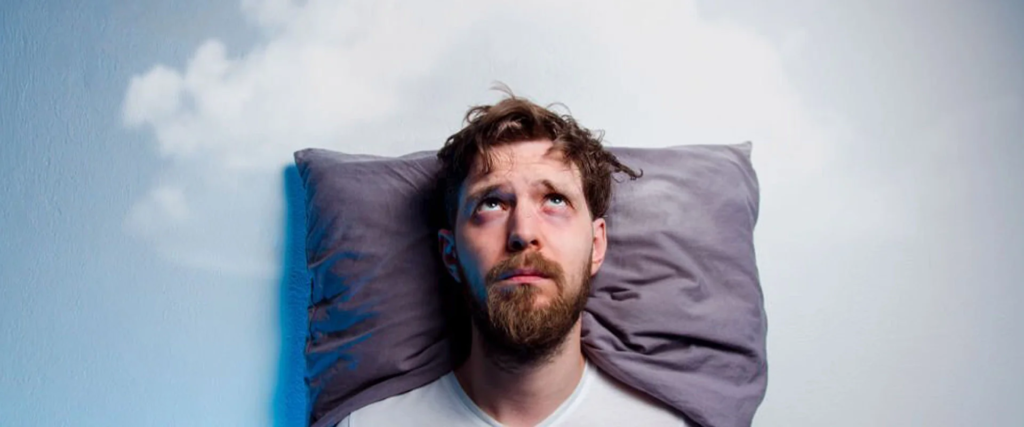Ever wondered what your nightly scroll is doing to your brain?
Social media addiction
You’re tucked into bed, the lights are out, and you tell yourself you’ll just check Instagram for five minutes. Suddenly, it’s been 45 minutes, your eyes burn, and sleep feels elusive. Sound familiar? You’re not alone—and science has some very real explanations for why this happens.

Let’s break down exactly how your brain is affected when you scroll Instagram before bed, using evidence from neuroscience, chronobiology, and psychology.
Table of Contents
Blue Light Hijacks Your Circadian Rhythm
Smartphones emit short-wavelength blue light—especially in the 450–480 nm range—that mimics daylight. This tricks your brain into thinking it’s still daytime, even if it’s midnight.

According to a study by Chang et al. (2015), just three nights of using light-emitting devices before sleep significantly suppressed melatonin (the hormone that signals your body to sleep), delayed REM sleep, and made participants groggier the next day.
In short: Blue light reduces melatonin, messes with your biological clock, and delays deep sleep.
What this means for your brain: Your natural sleep-wake cycle gets thrown off, causing fatigue, mood changes, and even poor memory over time.
The “Overthinking Engine”
Instagram isn’t just pictures—it’s a dopamine-infused cocktail of likes, stories, reels, and comparison triggers. Even if you’re just passively scrolling, you’re subconsciously assessing, comparing, reacting, and absorbing.
A large 2024 survey of 45,000 young adults found that for every hour spent on screens in bed, people lost an average of 24 minutes of sleep—even when blue light was filtered. Why? Emotional and cognitive arousal.
Your brain, now stimulated, becomes flooded with cortisol and norepinephrine, keeping you in a state of alertness.
What this means for your brain: Heightened emotional processing increases activity in the amygdala (your fear center), decreasing calmness and making it harder to “shut off.”
Dopamine & The Trap of the Infinite Scroll
Ever noticed how you can’t stop refreshing? That’s not a coincidence—it’s a design. Instagram, like many social media platforms, uses variable-ratio reinforcement, the same technique used in slot machines.

You scroll, sometimes you get a funny reel, sometimes a like, sometimes a comment. This unpredictability activates the mesolimbic dopamine system, creating habitual reward-seeking loops.
What this means for your brain: Dopamine hijacks your prefrontal cortex (responsible for rational decision-making), weakening your ability to stop. You know you should sleep, but your brain is chasing the next “hit.”
Sleep Deprivation and Neural Exhaustion
Multiple studies have shown that scrolling social media in bed leads to shorter sleep durations and a higher risk of insomnia. A 2024 Norwegian study even found a 59% increase in insomnia risk with every additional hour of bedtime screen use.

Chronic sleep loss does more than make you tired. It alters your hippocampus (memory center), disrupts glymphatic clearance (your brain’s nighttime detox system), and increases the risk of long-term issues like anxiety, depression, and cognitive decline.
What this means for your brain: You aren’t just groggy the next day. Your brain is literally losing its ability to clean itself, encode memories, and regulate emotions.
Doomscrolling and Neuroplastic Atrophy
When your nightly scroll is dominated by disturbing news, negativity, or endless content, you’re engaging in what’s called “doomscrolling.”

Repeated exposure to negative stimuli reinforces stress-responsive neural circuits, particularly in the amygdala and hypothalamus. This leads to chronic stress, poor emotion regulation, and long-term neuroplastic atrophy—your brain becomes wired for anxiety and rumination.
What this means for your brain: Your emotional brain stays overactive, while areas responsible for calm, reasoned thinking—like the prefrontal cortex—shrink in functional strength.
What Brain Scans Show
Functional MRI studies have confirmed that people who scroll social media frequently—especially late at night—show increased activity in the brain’s reward circuits (like the nucleus accumbens), and reduced regulation from the frontal lobe.

This is the exact same pattern seen in addictive behaviors.
In adolescents, a 2024 study found a clear link between less sleep, more social media, and hyper-reactivity to social rewards. These neural changes may lead to greater impulsivity, mood swings, and even depressive symptoms over time.
So, What Can You Do?
Let’s be real—quitting cold turkey might not be realistic. But here are science-backed steps you can take:
Practical Tips:
- Use a blue light filter (Night Shift, f.lux, or Blue Light Blocking Glasses)
- Set a digital curfew: No screen use 30–60 minutes before sleep
- Try “monk mode” scrolling: Only use apps like Instagram during the day
- Replace with sleep-friendly habits: Journaling, soft music, reading a paperback
- Track your habits: Use apps like Screen Time or Digital Wellbeing
The Brain Needs Downtime
Instagram is fun, addictive, and engineered for attention. But your brain isn’t designed to handle 24/7 stimulation, especially right before it’s supposed to rest and repair.

When you scroll Instagram in bed, you’re delaying sleep, over-stimulating your emotions, triggering dopamine addiction loops, and weakening your brain’s ability to recharge.
Sleep isn’t a luxury—it’s maintenance. Protect it like your mental health depends on it. Because… it does.
What About You?
Do you scroll before bed? Are you willing to try a night without Instagram?
Let’s start a conversation in the comments.
